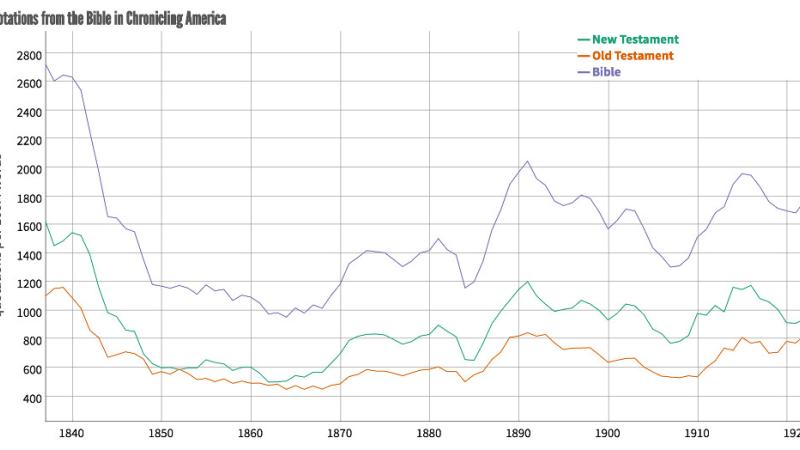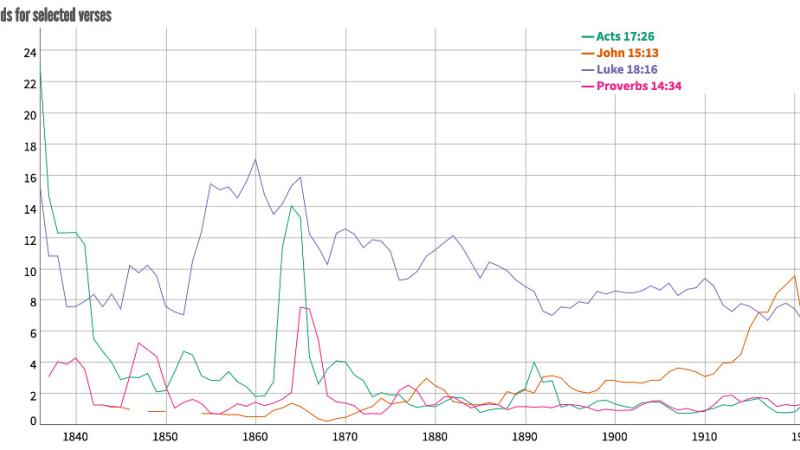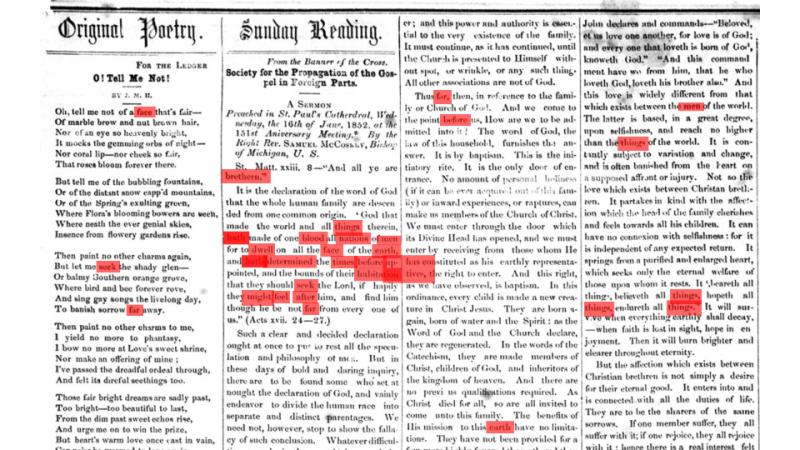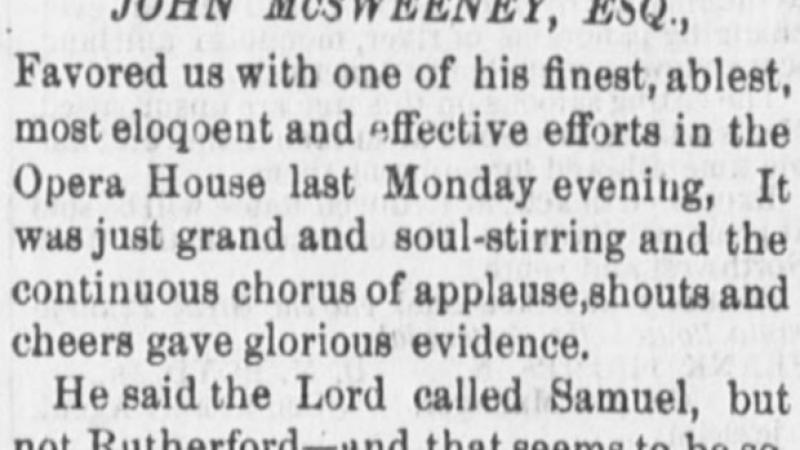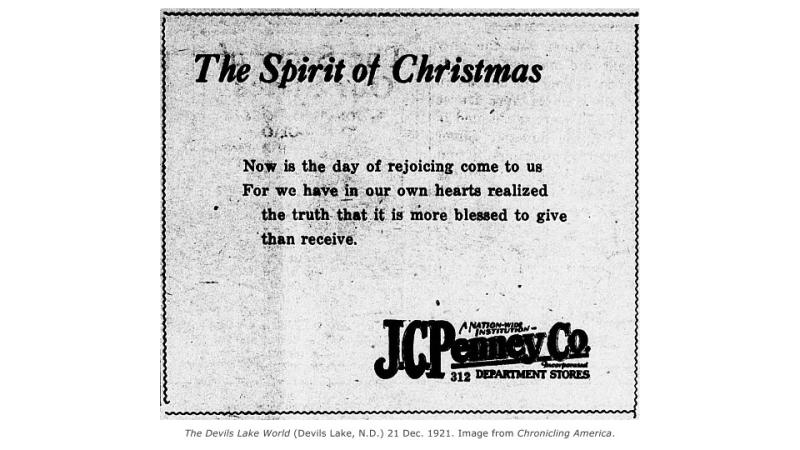NEH Data Challenge Winner: America's Public Bible
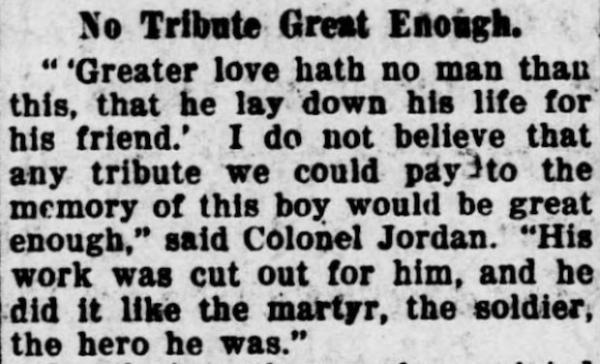
A memorial to an Rock Island, Illinois, soldier who died in World War I after saving other soldiers in a mustard gas attack, quoting John 15:13. From the Rock Island Argus (Rock Island, Ill.), 14 Nov. 1919.
Image courtesy of Lincoln Mullen.

A memorial to an Rock Island, Illinois, soldier who died in World War I after saving other soldiers in a mustard gas attack, quoting John 15:13. From the Rock Island Argus (Rock Island, Ill.), 14 Nov. 1919.
Image courtesy of Lincoln Mullen.
This series features guest posts from the winners of the Chronicling America Historic American Newspapers Data Challenge. This article features America's Public Bible: Biblical Quotations in U.S. Newspapers, a site built by Lincoln Mullen of George Mason University.
Throughout the 19th century and into the 20th century, newspapers and the Bible were frequently intertwined. Newspapers printed sermons and Sunday school lessons, aired political commentary that cited the Bible on every side of an issue, told jokes that featured Bible verses as the punchline, and sometimes even republished lengthy portions of the Scriptures.
America's Public Bible: Biblical Quotations in U.S. Newspapers uncovers the presence of biblical quotations in the Chronicling America collection of newspapers funded by the NEH. Using the techniques of machine learning, the project identifies the presence of biblical verses on specific newspaper pages.
There are two main ways with which users can interact with the site. First, they can enter a set of biblical references into an interactive visualization, or choose from a selection of significant references on a range of topics. The trend for how those verses were quoted is then charted. The chart is accompanied by a table where each instance of a quotation is linked back to Chronicling America, with the text of the quoted verse highlighted. The site thus uncovers two contexts for each verse: the context of the newspaper article in which it was used, and the chronological context of quotations from that verse and the Bible as a whole. The second way that users can interact with the site is through a series of supplementary visualizations and brief essays which explain some aspect of how the Bible was used in American newspapers. The site also includes an explanation of its methods.
America's Public Bible brings together two strands of scholarship. On the one hand, its methodology is drawn from recent digital humanities projects which are concerned with tracking the reuse of texts. On the other hand, it draws on a deep scholarly literature on the Bible as a cultural text in American life. The Bible offered thousands of texts, each of which could be interpreted in many ways. The contribution that this site makes is to show how thousands of biblical verses were used over nearly a century in some 56 billion words of text, revealing trends that are inaccessible to a single scholar's reading of these documents, yet enabling a close reading of the ways in which specific verses were put to use. By looking at how the verses were actually used, we can see how the Bible was a contested yet common text.
The Chronicling America Historic American Newspapers Data Challenge invited members of the public to create web-based projects using the historic newspaper data in Chronicling America. Entrants were to explore important humanities themes using technology including visualizations, maps, tools, and data mashups. Chronicling America is an open access, searchable database of historic U.S. newspapers produced by a long-term partnership between NEH and the Library of Congress. It includes millions of pages of digitized newspapers and descriptive information contributed by states and territories across the country. The Library of Congress provides the data through a well-documented API to enable exploration of the collection in a variety of ways beyond the site’s popular web interface. Visitors view around 40 million web pages in Chronicling America each year, and some also use the open API to explore the historic newspapers as big data. This openness allows users both to view individual pages and download big data sets used to show trends over time and space.

